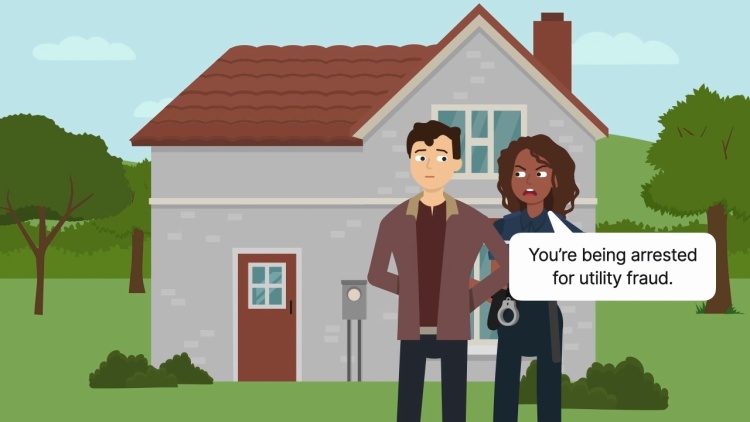Penley v. Commonwealth
Virginia Court of Appeals
655 S.E.2d 746, 51 Va. App. 166 (2008)
- Written by Samantha Arena, JD
Facts
On April 29, 2005, Dominion Virginia Power employee Carl Wohlleb visited the home of Eckle Penley (defendant) and found that Penley was using electricity supplied by an illegal meter since April 5, when Penley’s power had been shut off. Wohlleb called a serviceman to disconnect the illegal meter and also called the police. The Commonwealth of Virginia (plaintiff) charged Penley with utility fraud under Code §18.2-187.1, which prohibited any person from obtaining electric service through any scheme device, or other means, with the intent to avoid the payment of lawful charges. If the value of the service, credit, or benefit illegally procured was $200 or more, such person was guilty of felony utility fraud. The statute further permitted the court to order restitution for the value of the services unlawfully obtained, as well as associated costs. At trial, a Dominion employee testified that the power Penley unlawfully obtained through the illegal meter between April 5 and April 29 was valued at $82.29. The employee further testified that Dominion incurred various costs associated with Penley’s service, totaling $155.27, which included fees to turn off the meter and fees for Wohlleb’s visit. Penley moved to strike Virginia’s case. The court denied the motion, finding that the value of the services illegally obtained by Penley totaled more than $200, including in the calculation of the associated costs. A jury convicted Penley, and Penley appealed, contending that the court improperly included the associated costs in its calculation of the value of the electric services unlawfully obtained. In response, Virginia argued that the inclusion of costs was appropriate because such costs resulted directly from Penley’s illegal actions.
Rule of Law
Issue
Holding and Reasoning (Annunziata, J.)
What to do next…
Here's why 911,000 law students have relied on our case briefs:
- Written by law professors and practitioners, not other law students. 47,100 briefs, keyed to 997 casebooks. Top-notch customer support.
- The right amount of information, includes the facts, issues, rule of law, holding and reasoning, and any concurrences and dissents.
- Access in your classes, works on your mobile and tablet. Massive library of related video lessons and high quality multiple-choice questions.
- Easy to use, uniform format for every case brief. Written in plain English, not in legalese. Our briefs summarize and simplify; they don’t just repeat the court’s language.





